This content was published: May 12, 2017. Phone numbers, email addresses, and other information may have changed.
At PCC, regional faculty, administrators learn culturally responsive teaching
Photos and story by James Hill
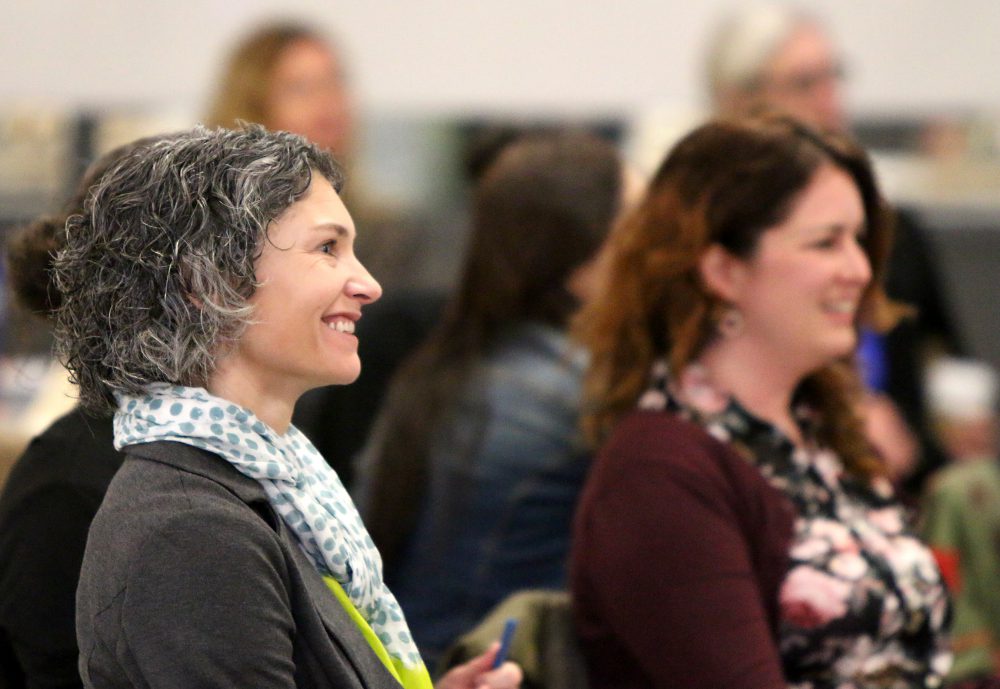
Sylvania’s Dean of Student Services Heather Lang enjoys the keynote at the conference on culturally responsive teaching.
“The separation of the head from the heart has contributed to a fractured education system that produces minds that do not know how to feel and hearts that do not know how to think.”
This quote by Parker Palmer, an author, educator, and activist who focuses on issues in education, community, leadership, spirituality and social change, was the foundation of a day-long conference on Friday, May 5. Rock Creek Campus’ Event Center was packed with instructors and professors eager learn how they can be more culturally responsive in their instruction. More than 160 educators were in attendance representing the likes of Central Oregon, Chemeketa, Clackamas and Mt. Hood community colleges, Portland State, Concordia and Western Oregon universities, and Multnomah County’s Child Care Resource & Referral services.
The event’s keynote was provided by Larry Roper, Oregon State University’s interim director of the School of Language, Culture and Society. His talk set the stage for the day, which showed faculty how to facilitate equity and inclusion in the classroom, discover hidden curriculum at their schools and beyond, develop tools for instruction. Afterward, participants attended breakout sessions to share viewpoints on what they learned and what is happening at their own organizations.
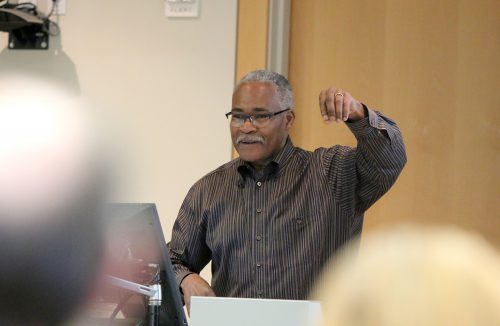
The event’s keynote was provided by Larry Roper, Oregon State University’s interim director of the School of Language, Culture and Society.
Roper shared tips on managing difficult situations with students, as well as employing affective learning to influence awareness and produce transformational outcomes. He encouraged faculty to learn all they can to truly understand their students and the history embedded within their institutions, in addition to socialized beliefs that affect their learners.
“Our institutions produce equity and inequities,” he said. “Everybody does not receive the same benefits for their memberships.”
In addition to his interim work, Roper is an OSU professor, a coordinator for its College Student Services Administration Program, and the lead for the university’s undergraduate social justice minor. He currently serves as a commissioner on the Higher Education Coordinating Commission and as chair of the NASPA Faculty Fellows. Roper has degrees from Heidelberg University, Bowling Green State University, and the University of Maryland.
The conference on culturally responsive teaching was part of PCC’s Preferred Future initiative, which is an appointed task force by the college president that assists in the creation, coordination, and communication of projects, initiatives, and resources related to equitable student success. Comprised of faculty, staff, and student leaders, the Preferred Future Task Force is organized around culturally and socially responsive pedagogy, services and resources for students and student support, community-building and civic engagement, and equity and inclusion efforts.
The summit was sponsored by PCC’s Equity and Inclusion, the Office of the President and the college’s deans of instruction.


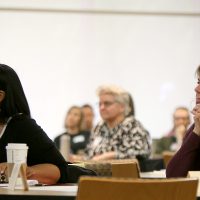
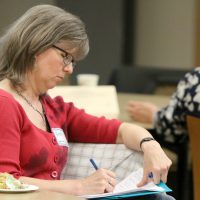
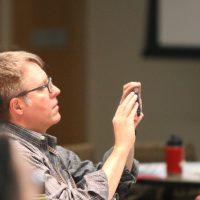

On October 23, 2012 President Ray, Vice President McCambridge, and Director of Facilities Services Martorello were found guilty by the 9th Circuit Court of Appeals of violating the 1st Amendment Rights of a student-written newspaper at OSU . Larry Roper was also a defendant in this case although he was found innocent. However, the court did find that Mr. Roper was aware of the 1st Amendment violations because he received a CC of an email complaint sent to President Ray. What did Larry Roper, who was then the Vice Provost of Student Affairs, do? Apparently nothing. In fact, when this court case was under consideration he said on his Twitter feed, “My colleagues are brilliant.” To which colleagues was he referring? The ones who were about to be found guilty of violating students’ First Amendment Rights?
Let us look at the stated goals of the OSU Division of Student Affairs as taken from the official OSU webpage:
Goals: The Division of Student Affairs will focus our energy and resources on the following aspects of community development:
We will create environments that strengthen holistic personal development and well-being of students.
We will cultivate a positive, inclusive and engaging campus community where multiple perspectives are openly shared and can thrive.
We will be a teaching and learning organization. We will enhance our own knowledge and the knowledge of others.
We will develop global citizens who are prepared and empowered to make meaningful contributions that are socially relevant.
By apparently standing silent about the 1st Amendment violations by the OSU President, Vice President, and Facilities Director, Mr. Roper clearly did not fulfill several of those goals. From available evident Mr. Roper did not lift a finger to help those students. Mr. Roper talks about diversity and inclusiveness but he seems to stand mute when diverse opinions are marginalized and silenced.
One of his most recent tweets says, “Campus’s (sic) must stand up to the fear being created by the policies of the current administration.” First, should we trust a man who clearly has no idea how to use an apostrophe? Secondly, did he stand up to the university administration he served when it used fearful tactics to suppress free speech? Third, what fear? Fourthly, do you think Mr. Roper cared in the least bit about folks who feared the administration of President Obama?
This man seems to be a partisan who does not care one whit for true diversity – the diversity of opinion. He couches his divisiveness and exclusionary tendencies in soft platitudes and ridiculous social justice jargon. In his own words, “Everybody does not receive the same benefits for their memberships,” and for people with whose politics he does not agree, it does not seem that he cares.